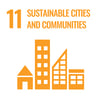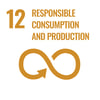Insights into CBE project coordination: SWEETWOODS flagship
For companies considering applying for Circular Bio-based Europe Joint Undertaking (CBE JU) funding and forming a consortium, understanding the role of a project coordinator is crucial. Karl Peebo is the project manager in the SWEETWOODS flagship project coordinated by Estonian company Fibenol. He shares his insights into the responsibilities and benefits of this key role in EU-funded project consortiums.
SWEETWOODS is a biorefinery flagship project launched in 2019 to cover the entire material process starting from wood raw material processing, enzymatic hydrolysis of wood and to further refinement of material into various end products. The project, originally set to run for four years, was designed to build a one-of-kind industrial demo plant in Estonia to turn sustainable hardwood biomass into high-purity lignin and wood sugars to industrialise innovative biomaterials and bioproducts.
This bioeconomy initiative is a 43-million-euro joint project with 9 partners which was granted 21 million euros in funding under the EU’s Horizon 2020 programme’s Bio-Based Industries financial instrument. The instrument was succeeded by the currently running Circular Bio-based Europe Joint Undertaking (CBE JU).
The workload of a coordinator
Karl Peebo from Fibenol has worked as the coordinator of the SWEETWOODS project for 5 years now and has gained experience of applying and coordinating other EU-funded projects as well. He says: “The preparation of the project proposal is often the most labour-intensive phase, requiring substantial effort to build a solid concept and consortium and give attention to detail. However, once the project is underway, the day-to-day management and coordination is less demanding, especially with support from consultancy companies such as Spinverse, which can alleviate much of the administrative burden.”
Karl Peebo sees that coordinating a CBE JU project does not necessarily mean a full-time job. However, the workload can fluctuate, with periods of reporting and deliverable preparation being more intense. A coordinator’s role is to balance the need for providing CBE JU with adequate information and ensuring smooth communication and cooperation among partners.
Karl reminds that unexpected issues inevitably arise during the project, calling for the coordinator to step in with risk mitigation strategies, consider project extension, or find alternative ways to achieve objectives.
Responsibilities and effort
The most effort-intensive tasks during the project operations include writing deliverables, collecting information from consortium partners, and ensuring that project results are effectively communicated. Communication is not just expected but essential, as CBE JU has specific targets for advancing the bioeconomy in the EU. The visibility gained through successful communication is also in the coordinator's interest, particularly for small companies building new plants or other operations that benefit from public awareness.
Benefits and surprises
Being a project coordinator comes with several advantages. The partnership and networking opportunities within the CBE community are invaluable for forming a consortium with like-minded partners, which can lead to extended networks and potential future customers. Moreover, project funding can accelerate the journey to market for innovative products or technologies.
Similarly to other projects launching at the same time, also SWEETWOODS faced global challenges, such as the COVID-19 pandemic and the war in Ukraine. Both affected face-to-face meeting schedules and delays in construction due to delayed raw material and equipment deliveries. These circumstances underscored the importance of having solid risk mitigation strategies.
Intellectual Property Rights (IPR) and funding impact
IPR concerns are common when multiple entities collaborate. According to Karl Peebo, standard contracts can address these worries without the need to disclose sensitive information. Openness to collaboration and clearly defined contracts are key to a successful partnership.
The SWEETWOODS project coordinated by Fibenol has yielded tangible results. The CBE funding facilitated the construction of a plant in Estonia with a capacity of roughly 25,000 tons, converting woody residues into valuable sugars and lignin. This project not only led to the creation of a spin-out company Fibenol which has grown from a small start-up to a company employing 50 persons, but also enhanced visibility, reaching wider audiences and potential customers. All these would have been challenging to achieve without the support of CBE JU.
Advice for prospective coordinators
For those contemplating the coordinator role, Karl Peebo says: “It is essential to recognise the workload and the potential benefits. Experience in coordinating and managing public funding projects can make the process smoother but if you have managed projects, you can deal with an EU-funded project coordination. Companies with such coordinator experience are also likely to find success in future funding calls as being a coordinator also provides great learnings about EU-funded projects.”
Karl reminds how back in 2018, Fibenol joined the project planning as small start-up of two people and hence found the support from Spinverse very valuable. Spinverse has been part of the SWEETWOODS project as a partner and supporting with day-to-day activities. “Spinverse knew all the necessary boxes to tick during the funding application stage to succeed against the competition. Getting up-to-date about reporting was also something we learned from Spinverse, helping to balance the workload in project coordination.”
SWEETWOODS gets more out wood with less waste
The SWEETWOODS flagship project, which is nearing its completion in May 2024, serves as a great example of the importance of a coordinator's role in a CBE JU project.
SWEETWOODS demonstrates how to get more out of wood with less waste and little environmental impact and provides sustainable alternatives to fossil resources. SWEETWOODS cellulosic sugars and high purity lignin have found their way into many different biomaterials including bioplastics, adhesives, biochemicals and others.
The project also showed the value of strong partnerships, a clear vision aligned with EU bioeconomy goals, and the effective use of public funding. For companies looking to innovate within the bioeconomy sector, the role of a coordinator offers a unique opportunity to lead, innovate, network and drive forward collaborative projects with far-reaching benefits.
This project supports the following UN Sustainable Development Goals (SDG):




Interested in a coordinator role in an EU project? Do not hesitate to contact Spinverse to find out how to get started!
Learn more about SWEETWOODS on their website here.

